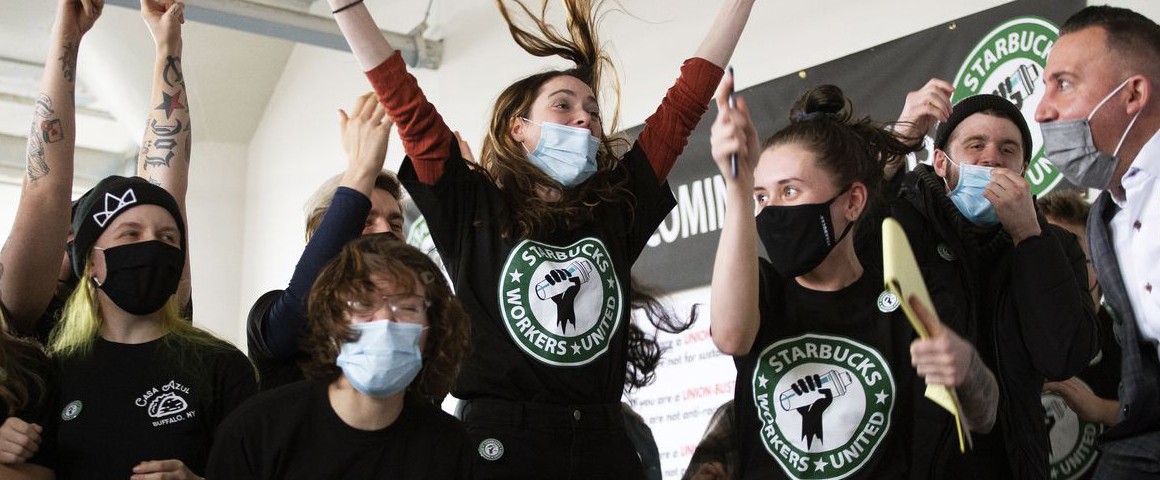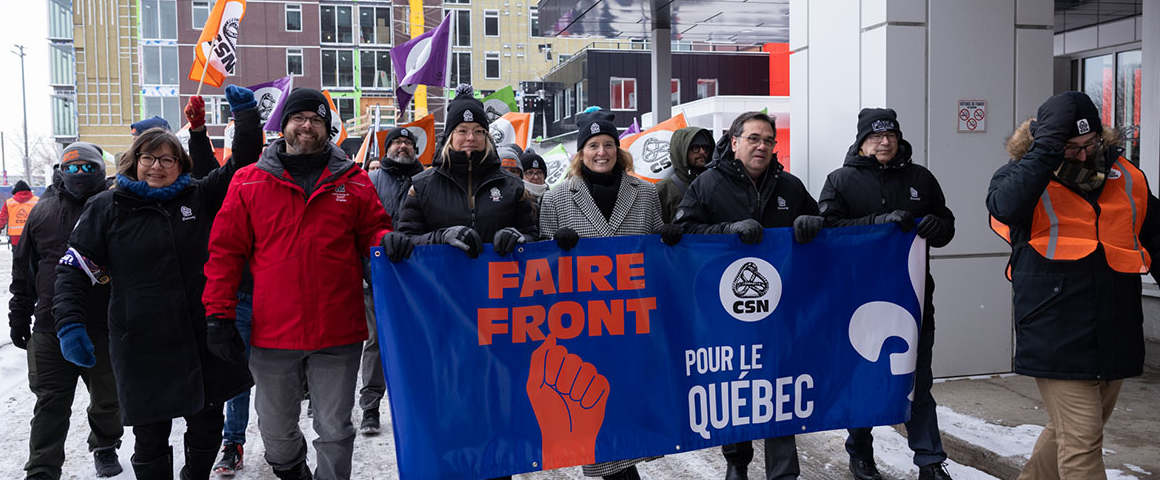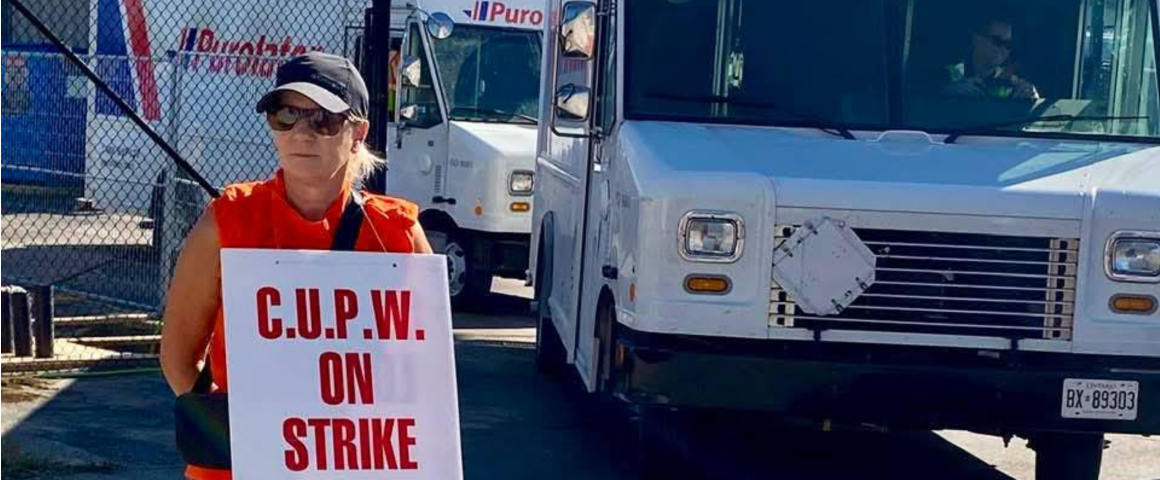By John McCharles
Dozens of labour activists from across Canada joined People’s Voice on March 24 for its “Organizing Starbucks” panel.
At the event, retired United Electrical, Radio and Machine Workers of America (UE) organizer Chris Townsend gave a keynote address detailing his role in the Starbucks organizing drive which has spread like wildfire across the United States and Canada. Joining Townsend for a brief panel discussion after the keynote were two United Steelworkers (USW) organizers who have worked at organizing stores in Canada, including the recent drive in Toronto which has led to the city’s first organized Starbucks location.
Townsend opened by tracing his own history in the labour movement, which began when he was in his late teens. He highlighted how important his socialist education and political activism were to his development as a trade unionist, and vice-versa. In particular, he contrasted working-class socialist activism with the New Left – mostly social democratic and almost exclusively working on campuses – which was still active during his younger years.
“The left – the real, socialist left – must be the driving organizing force for the working class,” Townsend told attendees. “Based on my experience, you will find good friends in some social democrats, and you might even win over some liberals, but the left must lead union organizing for it to be successful. It is our duty.”
Going further, Townsend described the dire conditions facing working people right now, both in Canada and the United States. He stressed the need for a concerted, militant, left-wing organizing movement oriented toward fighting back against what he called an “employer dictatorship.”
Speaking about the early Starbucks drives, he explained that things had started quietly just a few years prior with a project he initiated with others at the Amalgamated Transit Union (ATU) called the Inside Organizer School (IOS). The school bucks the trend of modern union education, which Townsend described as being “almost exclusively focused on staff development within the union apparatus,” and instead focuses on developing organizers who organize directly within the workplace.
Taking the simple slogan “Get on the job and organize!” the IOS began taking two cohorts per year and putting them through an intensive education program that was focused on worker-led organizing campaigns and class-struggle unionism. While this may seem like a novel approach when compared to the business unionism so deeply entrenched within the labour movement, the IOS bases its model on a text that is nearing 80 years in print.
“This book is our manual. I make sure every participant takes a copy,” said Townsend, proudly holding up a heavily worn copy of William Z. Foster’s selected writings, American Trade Unionism: Principles and Organization, Strategy and Tactics. Townsend went on to highlight how relevant the book remained today, particularly citing Foster’s careful examination of both victories and defeats as being some of the most important elements, and reading some short passages.
It would seem that the text did indeed remain relevant, with Townsend going on to highlight some early victories achieved by attendees of the IOS. “Things started out small, and I remember we had a few victories here and there,” he recalled. “And then I remember one of the students from [the school] organized a few branches of a small local coffee chain.
“Then, one day after things had taken off [at the chain] and we’re all patting ourselves on the back, this guy came in and told us, ‘I want to do it again,’ and we said ‘Great, where are you thinking is the next spot?’” Townsend continued, “When he said he wanted to try for Starbucks, I told him right then and there ‘You’re crazy. It’ll never happen.’” After some persistent agitation however, the IOS decided to support organizing drives at three small Starbucks locations.
Highlighting the incredible discipline of the organizers, Townsend spoke on the shaky early days of the drive. But eventually, what started as a modest push took root, and because of what Townsend described as “unbelievable arrogance” from the company, the three early drives were successful and sparked a campaign which now spans several countries and has organized over 10,000 members.
Townsend concluded by highlighting the resurgence of an old tactic in the labour movement, salting, and discussed the need for the left to reexamine it as strategy. Further, he added the desperate need for organizing drives to be prioritized by a labour movement which “is the wealthiest in the history of the planet” but spends only a fraction of its income on organizing – a theory of trade unionism referred to as “Fortress Unionism” in the United States.
Looking forward, Townsend pointed to the energetic organizing drives popping up across the United States and Canada as a cause for some optimism, while nonetheless reiterating the dire conditions working people were living under at the hands of the militant employer dictatorship.
In the face of these challenges, the IOS continues to build the next generation of organizers, closing with its slogan “Get on the job and organize!”
Support working-class media!
If you found this article useful, please consider donating to People’s Voice or purchasing a subscription so that you get every issue of Canada’s leading socialist publication delivered to your door or inbox!
For over 100 years, we have been 100% reader-supported, with no corporate or government funding.




